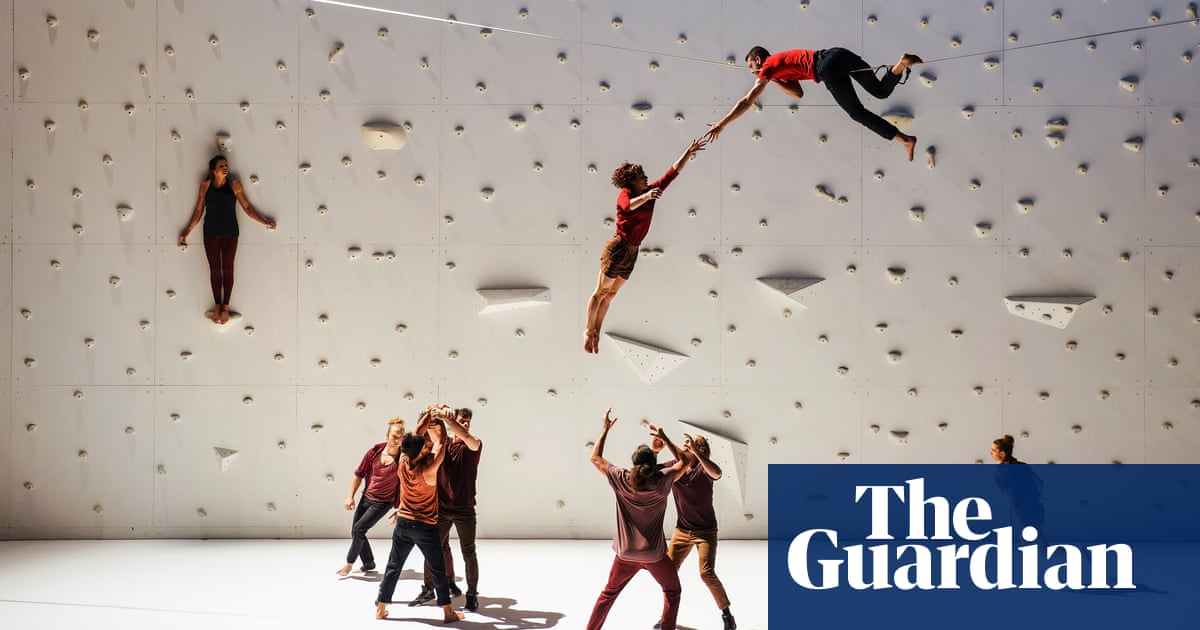
Jasmine Lee-Jones, 22, is a writer and actor from London. In July 2019, shortly after graduating from the Guildhall School of Music and Drama, her first full-length play was staged at the Royal Court theatre. Seven Methods of Killing Kylie Jenner follows a digital activist, Cleo, and her best friend, Kara, as they navigate abuse and racism on social media. The play won numerous accolades, including most promising playwright at both the Critics’ Circle and Evening Standard awards. It has been revived at the Royal Court for a six-week run ending on 27 July.
Seven Methods… tackles cultural appropriation, colourism and misogyny, but it often strikes a comic tone. What led you to this combination of comedy and darkness?
I knew that cultural appropriation was a very big subject and that everyone has an opinion on it and that it can be very polarising. [Through comedy] you can get people to listen in a different way. I also wanted it to be the experience I have when I’m talking to my friends; we can be talking about something really serious and then one of us will say: “Oh my god, I forgot to tell you…” and it becomes light and jokey.
I grew up with so much comedy. My biggest inspiration was the Jamaican comedian Oliver Samuels, but my parents introduced me to The Real McCoy and other sitcoms and I think you can feel that in this play.
What was the origin of the play’s title in relation to Kylie and the Kardashians? And what kind of reactions did it get?
It was just an instinctive thing, really. It came into my head and I just remember writing it down – even before I’d conceived the whole idea of the play. There have been various reactions, from faces going blank, to discomfort, to laughter, but the one that sticks out is a close friend of mine hearing the title just before it was about to be programmed and saying: “I hate it!” It was already too late!
You’re an actor. Were you tempted to perform in the play?
Definitely, particularly this second time around when there’s an opportunity to turn the cast around, but I made the decision not to. When I was growing up, I saw how people who were darker than me and lighter than me were treated. I couldn’t have played Kara because I’m not mixed race. I wrote Cleo as a darker-skinned black woman and I’m in between on the spectrum. I thought that if I played one of these characters, I wouldn’t be able to look myself in the mirror. But I’m playing about 10 characters in my next play, Curious, a solo show at the Soho theatre.
What is your dream role?
I’d love to play a romantic lead. I’m obsessed with 90s and early 00s black American romcoms and I wonder what modern-day love stories look like for black Britons of our generation. I’d also love to have a go at Beneatha Younger in A Raisin in the Sun - she’s such a complex, richly drawn character.
Have you had a good or bad lockdown?
I wasn’t very well for the first one, during the [BLM] protests last year. I was going through a lot. I had kept working and it got to the point where I was so overwhelmed that I took a month out and that’s when all the protests happened. People were messaging me, but I didn’t have the capacity or energy to be there.
Do you think we are closer to dismantling structural racism after the BLM protests? In Seven Methods… Cleo is writing a dissertation on structural racism – would she be pleased by the progress we may have made?
I’m not sure she’d be on the frontline. She is a critical thinker and sometimes people class critical thinkers as negative. You can be really pleased but also critical – the two can exist side by side. She might be celebrating what’s gone on but also critical of what it meant and how long it will last and the iconography around BLM.
In your conversation last year with playwright Winsome Pinnock, she said that “the theatre space will not accommodate the black British story”. Is that true?
It was a brilliant observation and provocation too. I understand what’s underneath it but I have questions about it. What she might have been alluding to, partly, is the fact that something is easier to look at from a distance. If you have the black American story on stage in Britain, it is slightly easier for people to stomach. Shows about British racism are sometimes a bit diluted to make things easier on the audience.
Your play is about a Twitter storm but you are no longer on social media. When did you decide to leave?
At the end of 2020. The first thing to go was Twitter. Getting rid of Instagram was hard, but people were getting the wrong end of the stick about me and vice versa. You can make an identity on social media and that’s why it’s so powerful for people of colour and marginalised communities. When you live in a world of structural inequality, you can be seen.
It can be beautiful to be a version of you – it’s almost like cosplay – but I saw how it was damaging my relationships with people. The nail in the coffin was when I saw how it was negating my ability to communicate with people in real life. I’m about 90% sure I have ADHD and I’m very happy to do a lot of things at once, but it was making it harder to listen. When I left, I got so much time back and that’s one of the reasons it’s hard to delete: there’s the peril of nothingness and there’s the tyranny of loneliness.
Have you ever felt impostor syndrome and do you feel more fully part of the industry since the play’s success?
I don’t think I ever felt like an impostor but I did have a fear of how much I could do and would be able to do. It’s like that quote: “Our deepest fear is not that we are inadequate. Our deepest fear is that we are powerful beyond measure.” I have had two years in the industry now and I can say it’s not a meritocracy. It’s full of isms and schisms and nepotism.
What have you missed most about going to the theatre and have you been back to see anything yet?
I have been watching a lot more TV and film but what I have missed most is being in the audience. That feeling of all being under the spell of imaginary circumstances. It’s truly magical.
What did you listen to or watch during the pandemic that kept you sane?
I May Destroy You was outstanding. I rewatched Adult Material – there are only four episodes but you get everything you need in them. My Wife and Kids, which is a black American sitcom set in Connecticut, was comforting TV too. I was really happy when Girlfriends went on Netflix – it was hard to find before and it’s good to see some programmes go mainstream after the Black Lives Matter movement. Music-wise, the album I keep replaying is Innocent Country 2 by Chris Keys and Quelle Chris – a heady mix of neo-soul and experimental hip-hop. I feel like the song Black Twitter off the album is the soundtrack to Seven Methods…. Shout out to Courttia Newland for the recommendation!











